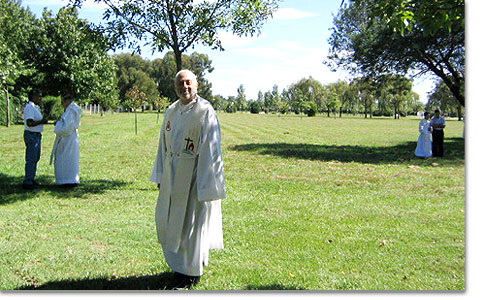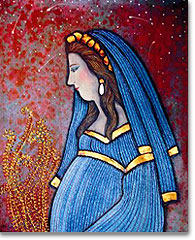 |
|
Arte Moderno – Paraguay
Modern Art, Paraguay
Zeitgenössische Darstellung, Paraguay |
|
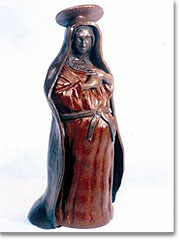 |
|
Artesania – Paraguay
Popular Art, Paraguay
Volkskunst, Paraguay |
|
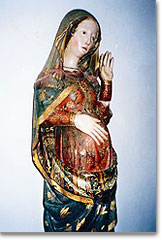 |
|
Imagen del siglo XIV – Portugal
Statue from the fourteenth century, Portugal
Darstellung aus dem 14. Jahrhundert, Portugal
Fotos: Pontes © 2006 |
|
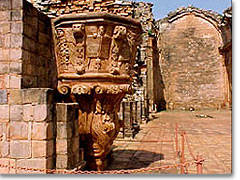 |
 |
San Ignacio Guazú en Paraguay
San Ignacio Guazú in Paraguay
San Ignacio Guazú in Paraguay |
|
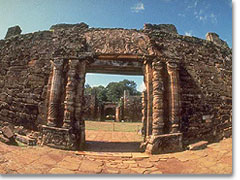 |
|
San Ignacio Miní en Argentina
San Ignacio Miní in Argentina
San Ignacio Miní in Argentina |
|
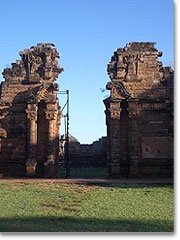 |
 |
San Ignacio Miní en Argentina
San Ignacio Miní in Argentina
San Ignacio Miní in Argentina
Fotos: Pontes © 2006 |
|
| |
|
PARAGUAY, mkf. Father Jose Pontes is a Portuguese Schoenstatt Father
who presently works in Paraguay. For some years, he has been examining
the social exclusion and extreme poverty that the peasants and the native
indigenous peoples suffer. It a situation that is continually denounced
by the Church and a concern that His Holiness John Paul II echoed in his
historic visit of 1988.
For centuries, the Catholic Church has virtually been the only institution
concerned about this reality. The Church has conscientiously worked to
preserve not only the physical lives but also the cultural traditions
of diverse ethnic groups that inhabit these vast territories. It is important
to recall, for example, the indigenous pueblos of the Jesuits. Today they
are historical ruins but in their time, they were models of Christian
social order with original architecture and high musical achievement.
In short, it was the advancement of cultural evangelization and of the
aboriginal values. San Roque Gonzalez de Santacruz, a Jesuit Martyr from
Paraguay, founded thirty-two pueblos. Many of them were the origins for
cities in southern Brazil, northern Argentina (Missions), and a very broad
section of southern Paraguay. Father Kentenich mentioned these pueblos
of Paraguay to his students in the years of 1916 and 1917 precisely to
demonstrate them as models for the application of the Christian way of
social order. Thanks to Father Alex Menningen, the contents of his conferences
were made known and these declarations serve as point of historic departure
in the search for the national mission ideal of Schoenstatt in Paraguay:
"Nation of God – Heart of America". The expelling of the Jesuits from
these territories by the Spanish crown in the XVIII century left this
impressive development unfinished.
A contribution to the advancement of human dignity: "Maria Gravida"
It was precisely to contribute to the human advancement of these forgotten
brothers that motivated Father Pontes to work for the acceptance and the
appreciation of the indigenous and peasants of Paraguay. His proposal
is to form unified teams that will work specifically, with a openness
to the different cultures, and develop a new appreciation for the indigenous
community. From a fraternal and a covenant perspective, Father Pontes
maintains that it is possible that the "white culture" can enter into
a profound dialogue with the indigenous culture (words of the Holy Father
John Paul II during the canonization of three indigenous Mexicans).
Father Pontes wants to unite this social project of an organizational
system in the building and nourishing of these communities with an art
project. For this reason, he has worked on the publication of the book
"Maria Gravida". All the money that is collected from the sale of this
work will be used to sustain this project in progress.
"Maria Gravida" is primarily a book about art. The different illustrations
manifest one of the most controversial subjects since the XIV century:
Mary is pregnant! It contains iconography of an expectant Mary, accompanied
by prayers and meditations that are a guide for contemplative reading.
It is a bilingual book in Spanish and Portuguese. It is the fruit of almost
three years of intensive investigative work in Europe, America, and Africa.
The book has 192 high quality pages with 260 pictures, 120 are in color.
This book can be obtained in the Editorial Patris Argentina Editorial-patris-argentina@schoenstatt.org.ar
or at Editorial Loyola of San Pablo, Brazil
Translation: Celina M Garza, Harlingen, TX, USA / Christi
Jentz, Milwaukee, WI, USA
|
